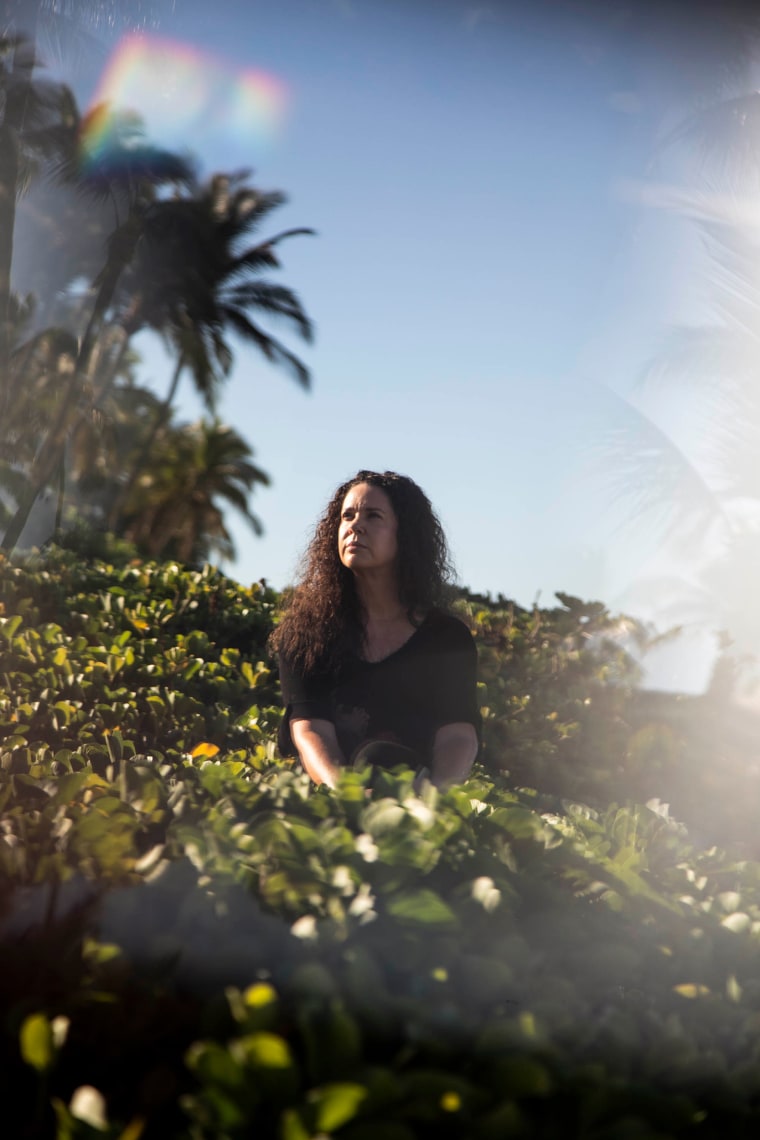The official reopening of West Maui to tourists this month comes amid what local health care professionals and residents describe as an unprecedented mental health crisis as residents spiral into despair and crushing grief, straining an overburdened behavioral health system.
“We have seen a very large increase of individuals needing counseling and needing support for trauma processing,” said John Oliver, who oversees mental health services on Maui for the Hawaii Department of Health. “We expect that number to really grow in the next few months as individuals are able to focus more on their mental health once they are secure in their housing and they feel like their basic needs are met.”
Oliver said he heard about a grandmother and granddaughter who jumped into the ocean to escape the flames and still wake up tasting seawater.
Those who tried to rescue family members, friends or pets but were unsuccessful struggle with survivor’s guilt, and some question whether they want to go on living, said Debbie Scott, a social worker and trauma therapist on Maui.
“I am noticing that there is an uptick in very dark thoughts, suicidal thoughts, passivity in terms of ‘I don’t know what I’m going to do. I just don’t even know if I want to be here,’” Scott said. “Losing pets and losing every belonging, losing history, losing tradition, has left souls pretty empty.”

Lansford was one of many Lahaina residents who spent the first 24 hours after the fire helping to rescue people. A video of him standing in the street, angrily shouting for help from federal officials, became one of the fire’s most recognizable images.
Reigniting trauma from Maui’s colonial past
More than a dozen people interviewed by NBC News said they had heard stories of suicide attempts and deaths since the wildfires. None of the accounts could be independently verified, and Hawaii’s state health department said it has not recorded a higher suicide rate since the fires relative to historical averages. The department declined to provide details or precise numbers.
The Maui Police Department confirmed one suicide since the Aug. 8 wildfire, one of three that erupted on the island that day, but a spokesperson said it was not necessarily related to the disaster.
Still, suicide and depression remain a top concern among mental health professionals and residents, who whisper through what is colloquially known as the island’s “coconut network” about the toll inflicted on survivors.
Suicides are known to climb after large-scale disasters. A 12-year study found that suicide rates in U.S. counties that experienced a natural disaster increased 23% in the three years afterward relative to the three years prior.
Suicide rates among Native Hawaiians and Pacific Islanders have also risen in recent years. According to the Centers for Disease Control and Prevention, the rate increased nearly 16% in that group from 2021 to 2022.
But West Maui’s mental health crisis is distinctively dire, local psychologists and state health officials said. The wildfires reopened long-standing wounds from Hawaii’s colonial past while simultaneously destroying a resource residents are deeply connected to: the land.
“The loss of the land, because we are tied to it so intricately, has been the element that has caused the deepest devastation,” said Kalena Lanuza, a mental health nurse practitioner who works with pregnant and postpartum Native Hawaiians. Lanuza, a Native Hawaiian who lives in California, sees clients in Hawaii through telehealth.
